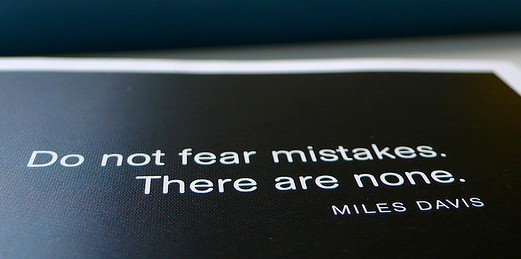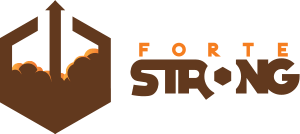Something that we talk about with failure to launch young men are the benefits of making mistakes. Some struggling young adults are too scared to make a mistake which prohibits them from actually stepping outside of their comfort zones to try new things in life. After all, society tells us that making mistakes are bad, right?
The online definition for mistake is “An error in action, calculation, or judgment, caused by poor reasoning, carelessness, insufficient knowledge, etc…” Although this may be true in some cases, without affording ourselves the opportunity to make mistakes we inhibit ourselves from using a huge learning tool from our experience tool belt, so to speak.
Making mistakes = Learning
Diana Laufenberg, an experienced and prestigious Philadelphia high school teacher and a loud advocate for ‘learning by mistake’ was invited to present her unique ‘learning by mistake’ teaching platform at the 2010 TedTalks summit and her presentation has received over 1,000,000 views to date. Diana reiterates again and again how important mistakes are to the learning process and is quoted,
We deal right now in the educational landscape with an infatuation with the culture of one right answer that can be properly bubbled on the average multiple choice test. I am here to share with you, it is not learning.
Many children as they grow up often associate making mistakes to failure. If you think this way, you couldn’t be more wrong!! Making mistakes helps us to rethink, refine and refocus our efforts. Think of mistakes as a sort of “checks and balances” in the learning process. How many times do we make a mistake, and go through the consequences of it, and tell ourselves after all is said and done, “I’ll never make that mistake again!” And the fact of the matter is, we usually don’t! As a result our experience, wisdom and ability to make better decisions grows. Lets look at a few interesting things that would have never happened without making mistakes.
- the light bulb (thanks to Thomas Edison and his over 1,000 “mistakes”)
- chocolate chip cookies
- cornflakes
- the pacemaker
- vulcanized rubber (thanks to Charles Goodyear)
- radioactivity
- plastic
- penicillin
Making mistakes = Confidence
 The reason why most young men who struggle with failure to launch don’t experience much success is not from a lack of intelligence or skill, it’s from a lack of confidence. Confidence is gained through small victories and small victories is a result of wise decision making and wise decision making is a result of learning from our mistakes.
The reason why most young men who struggle with failure to launch don’t experience much success is not from a lack of intelligence or skill, it’s from a lack of confidence. Confidence is gained through small victories and small victories is a result of wise decision making and wise decision making is a result of learning from our mistakes.
That is the absolute wrong thing to ask, to tell kids to never be wrong. To ask them to always have the right answer doesn’t allow them to learn.
99% of the students that we work with on a continual basis were not stuck at home as result of making bad decisions as much as a result of making no decisions. The plain and simple truth is they were afraid of failure. Afraid of making mistakes, so they make the biggest mistake of all… they stop trying. So remember to get out there and make some mistakes! Try, do, attempt, experiment and learn! Because the worst mistake that anyone can make, is being too afraid to make one!
learning has to include an amount of failure, because failure is instructional in the process.
-The Forte Strong Family
About The Author
Brook Price dedicated himself to helping others early in his life. He grew up in Sunny Orange County California, then joined the Marine Corps at the age of 21 serving five and half years as a helicopter crew chief and then as chief accountant. His journey with this type of work began when he volunteered as a Young Marines Instructor during his time in the Marines, helping kids get off the street, improve their lives and develop as a leader. After his tour Brook left the Marines to pursue a career in experiential therapy by attending Southern Utah University where he majored in outdoor recreation with a minor in psychology.
Brook has seventeen years experience working for a variety of different therapeutic and transitional programs across the nation. His thirst for knowledge drove him to learn and study successful therapeutic models and programs across the country, most notably Outward Bound. Brook has experience working with therapeutic, residential, military, wilderness and transitional programs for adults and adolescents.

